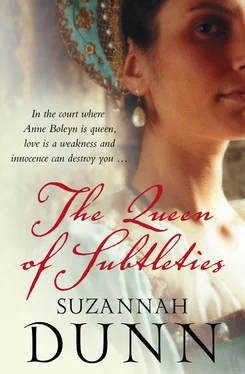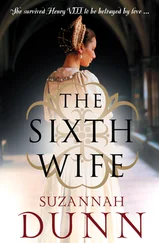He leaned towards me, expectant.
‘Strictly private,’ I whispered.
He indicated to the others: Skedaddle, would you?
Six lots of strings winding to a sudden silence, seven pairs of feet released across the carpet. He turned to me, pleasant; nothing too much trouble. I felt both solemn—this was some undertaking, this was it —and ridiculously giggly. I kissed him, and he took up the kiss and carried it on.
Later that night, that dawn, he asked me if I’d stay, and I said no. He didn’t mind; he was happy, it was a novelty, and there was everything to look forward to. Not long now, he was probably thinking. ‘You,’ he chided: indulgent, familiar.
Those early days were bliss, for me. It had been a long time since someone had placed his lips on my pulse. Too long since someone’s forefinger had run down my naked ring finger. Every evening, that summer, we stayed alone on the riverbank when the shadows were too blue for comfort.
But that was all we did. Every night, he asked me if I’d stay; every night, I said no. I wouldn’t be his mistress. Our relationship, as far as I was concerned, was a dalliance. I even liked the word, dalliance. And of course I liked the jewellery. But then, one day, sometime late in 1526, something happened. All that happened was that he walked into a room, smiling, and sat down. That was all, but that was it. He didn’t see me, when he came through that door. He came in with Billy Brereton, relating some tale that had Billy weak with laughter. I don’t think he saw any of us in particular, merely raised a hand to the room, Don’t get up. He strode past us all and slung himself into his throne; a long-limbed, loose-limbed man. He was grinning, pleased with himself: this king, this most kingly of kings, grinning like a boy. His hand flicked through his hair before he settled back and closed those gem-like eyes. Look at you, I thought, and knew, in that instant, that I’d been naive: we would have to spend our lives together. It was time, I saw, for him to move on. His marriage was over. Not that it was ever a marriage. Only ever a formality.
So, later that same evening, I asked him: ‘If you love me so very much—’
‘—Oh, I do, I do,’ punctuated with kisses to my shoulder.
‘—why don’t you marry me?’
He laughed, ‘Well—’ Stopped. Stopped laughing.
Yes. Precisely. You’re already married.
Shaken, he tried to make light of it: ‘Anyway, you wouldn’t marry me.’
‘Wouldn’t I?’
That smile was frozen; behind it, I could see, he was thinking fast. ‘A clever young girl like you.’
‘I thought there was no one like me.’
‘There isn’t.’
‘Well, then.’
He sat back, the better to see my face. ‘But you wouldn’t, would you?’
And now I allowed him a smile. ‘You asking?’
The next time he asked me to sleep with him, he tried to bolster his case by reminding me that we were going to be married.
‘ When we’re married,’ I said, ‘I’ll stay.’
I could see that he barely believed it—that I was still refusing him—and was about to laugh me down, to protest long and loud. But of course there was no denying it: when we were married, we’d sleep together.
I pressed on: ‘Henry, Henry, listen: what you don’t need is another bastard.’
He might not have liked hearing it, but it was the truth. He said nothing for a moment, and then he conceded, ‘Well, it’d better be soon, anyway.’
‘Yes,’ I said, ‘that’s right, it’d better be.’
Why hadn’t it happened sooner? If it was the perfect match that I claim it was, a meeting of minds, why didn’t it begin as soon as we met? I’ve been thinking about that. I’ve been thinking about those six years we lived alongside each other at court before he asked his confectioner to make me that sugar rose. It wasn’t as if we hadn’t been well-acquainted. The Boleyns couldn’t have been closer to Henry: my father was Treasurer; my brother was a Gentleman of the Privy Chamber, one of the elite attending to the king; my sister doing the same, but differently, for her year or so as royal mistress. I suspect it was for precisely that reason: Henry was always there, and he was everything; defining our lives, our lives revolving around him. Because of that, he was almost irrelevant to me. I was busy, in my early twenties, with my girl-life. Smitten with a pretty-boy. Henry was a man, in his thirties and into his second decade of marriage. Moreover, of course, he was the king. For me, he wasn’t a potential lover; it never crossed my mind. And if it had, Henry wouldn’t have appealed to me. Oh, he impressed me, yes, of course. And intrigued me. But the sheer spectacle of him…Well, that was what it was: spectacle. He wasn’t for falling in love with.
Henry didn’t divorce Catherine because of me. For me, yes; in the end, yes. But not because of me. He was thinking of doing so anyway, in time, probably to marry some French princess. Wolsey was keen on that idea. He was late to catch on to what was happening, was know-all Wolsey. Even though he did know about me. Or thought he did. But what he knew—or thought he did—was that I was the king’s new bit on the side. I’d been suitable to invite again and again to lavish dinners at his gorgeous Hampton Court (a thousand rooms, a thousand crimson-clad servants) on the arm of the king…but I was nothing more. As wife-to-be, I rather crept up on Wolsey. But that’s because he’d been kept in the dark. Replaced as the king’s confidant. By me, funnily enough, as it happens. Right-hand man replaced by bit on the side: no wonder he was caught off-guard.
Leviticus 20, verse 21: And if a man shall take his brother’s wife, it is an unclean thing: he hath uncovered his brother’s nakedness; they shall be childless. Henry’s wife was his—had been his—brother’s wife, briefly, before his brother’s death. The marriage had been deemed a non-event because, according to Catherine, Arthur hadn’t been up to doing his husbandly duty. The problem was, Henry and Catherine still had no children. Well, no sons. There was of course the daughter, pathetic example though she was. A mis-translation, said Henry, turning sudden specialist in Hebrew: it should read ‘sonless’. Henry and Catherine’s lack of a surviving son, he decided, was God’s judgement on a sinful marriage. That’s what he said, and he believed it; he talked himself into believing it and from then onwards his fervour was unshakeable.
I didn’t suggest Leviticus to him. Why would I? In my view, he had grounds enough to rid himself of that Spaniard: she’d proved no use at all, and now—aunt of a rampaging emperor—she was a liability. And Leviticus was no discovery for him: he’d quoted it, years before we met, in his book on Luther. As for the dubious validity of his marriage: he knew that it had been an issue at the time; and he knew, too, that for some the misgivings had persisted. A French bishop, for example, had queried the brat’s legitimacy during a round of marriage-brokering. None of it was news, and none of it—yet—was due to me.
Like anyone else at court, I’d heard speculation from time to time about a royal divorce: Why doesn’t he just get rid of her? Marriage breakdown and separation happens all the time. Sometimes an annulment, or a divorce. And in this particular case? Our lovely young king married to a babbling old nun? Worse: a babbling old Spanish nun, when England’s focus was firmly on France. Her being a Spaniard could be overlooked, though; she’d been here a long time. What really mattered was that distinct lack of live baby boys.
If Wolsey had had his way, he’d have got Henry his divorce and then shipped in some French flesh to produce princes, and to have French friends and deck up for functions. Well, I could do that. And more. And I wouldn’t have to be royal; Elizabeth Woodville hadn’t been, and it hadn’t stopped her marrying Edward IV. And anyway I wasn’t completely un -royal; I had that smidgeon of Plantagenet blood. (Didn’t we all, though. All except Wolsey, that is.) Surely I could produce sons—my useless sister had just managed one—and I was practically French, I’d done a long stint at the French court and was liked by anyone, there, who was anyone. There was another way in which I was queen material, too: no one in England rivalled my dress sense. I dressed the part. So, I’d do. Better still, I’d be no homesick half-wit. But best of all, this was my country and I had plans for it, along with the guts to see them through. And one of those plans was going to make me very popular with just about anyone who wasn’t Wolsey: I wanted rid of Wolsey.
Читать дальше












